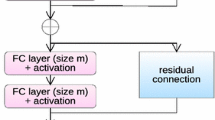Abstract
The envelope theorem is extended to cover the class of discounted and autonomous infinite horizon differential games that possess locally differentiable Nash equilibria. The theorems cover open-loop and feedback information structures and are applied to an analytically solvable linear-quadratic game. The linear-quadratic structure permits additional insight into the theorems that is not available in the general case. With open-loop information, for example, the costate variable is shown to uniformly overstate the shadow value of the state variable, but the growth rates of the two are identical.

Similar content being viewed by others
References
Basar T, Olsder GJ (1995) Dynamic noncooperative game theory, 2nd edn. Society for Industrial and Applied Mathematics, Philadelphia
Boyce WE, DiPrima RC (1977) Elementary differential equations and boundary value problems, 3rd edn. Wiley, New York
Caputo MR (1996) The envelope theorem and comparative statics of Nash equilibria. Games Econ Behav 13:201–224
Caputo MR (1998) A dual vista of the Stackelberg duopoly reveals its fundamental qualitative structure. Int J Ind Organ 16:333–352
Caputo MR (2005) Foundations of dynamic economic analysis: optimal control theory and applications. Cambridge University Press, Cambridge
Caputo MR (2007) The envelope theorem for locally differentiable Nash equilibria of finite horizon differential games. Games Econ Behav 61:198–224
Cohen D, Michel P (1988) How should control theory be used to calculate a time-consistent government policy? Rev Econ Stud 55:263–274
Dockner EJ, Neck R (2008) Time-consistency, subgame-perfectness, solution concepts and information patterns in dynamic models of stabilization policies. In: Neck R, Richter C, Mooslechner P (eds) Quantitative economic policy. Springer, Berlin, pp 51–101
Dockner EJ, Van Long N (1993) International pollution control: cooperative versus non cooperative strategies. J Environ Econ Manag 24:13–29
Dockner EJ, Jorgensen S, Van Long N, Sorger G (2000) Differential games in economics and management science. Cambridge University Press, Cambridge
Engwerda JC (2000) Feedback Nash equilibria in the scalar infinite horizon LQ-game. Automatica 36:135–139
Groot F, Withagen C, de Zeeuw A (2003) Strong time-consistency in the Cartel-Versus-Fringe model. J Econ Dyn Control 28:287–306
List JA, Mason CF (2001) Optimal institutional arrangements for transboundary pollutants in a second-best world: evidence from a differential game with asymmetric players. J Environ Econ Manag 42:277–296
Mehlmann A (1988) Applied differential games. Plenum, New York
Miller M, Salmon M (1985) Dynamic games and the time inconsistency of optimal policy in open economies. Econ J 958:124–137
Van Gorder RA, Caputo MR (2010) Envelope theorems for locally differentiable open-loop Stackelberg equilibria of finite horizon differential games. J Econ Dyn Control 34:1123–1139
Acknowledgements
We thank Jacob C. Engwerda for suggesting that we apply the envelope theorem to a linear-quadratic differential game. We also thank a referee for several thoughtful comments that have resulted in a better paper.
Author information
Authors and Affiliations
Corresponding author
Rights and permissions
About this article
Cite this article
Ling, C., Caputo, M.R. The Envelope Theorem for Locally Differentiable Nash Equilibria of Discounted and Autonomous Infinite Horizon Differential Games. Dyn Games Appl 2, 313–334 (2012). https://doi.org/10.1007/s13235-012-0045-8
Published:
Issue Date:
DOI: https://doi.org/10.1007/s13235-012-0045-8



